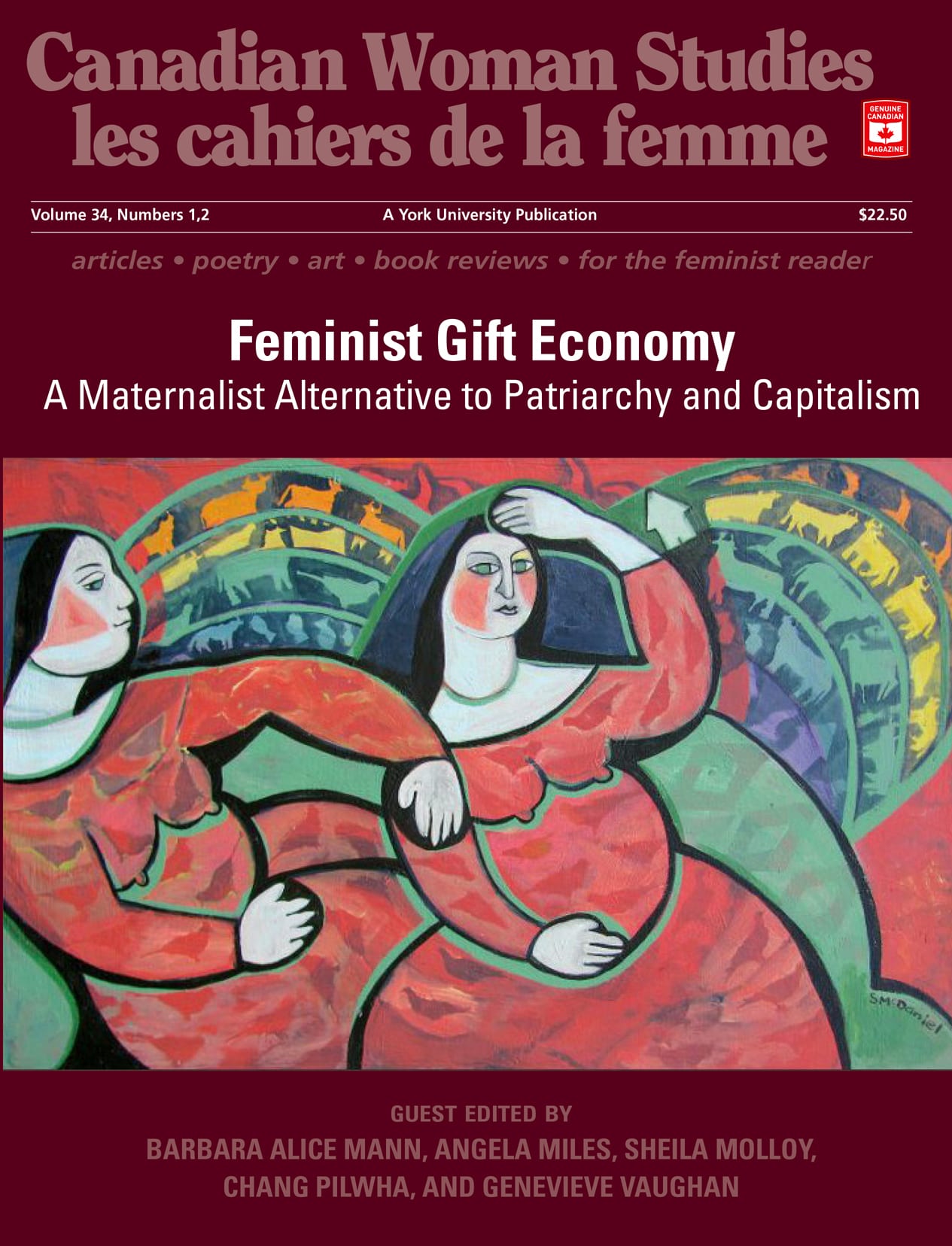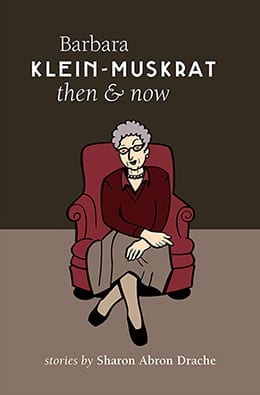Guest Editors: Barbara Alice Mann, Angela Miles, Sheila Molloy, Chang Pilwha, and Genevieve Vaughan
Editorial: It is a pleasure to bring you this special issue of Canadian Woman Studies on the “Feminist Gift Economy: A Maternalist Alternative to Patriarchy and Capitalism.”
Today, we are facing the frightening social and environmental consequences of “modern” patriarchal colonial capitalism. Still, egalitarian, life- and mother-honouring social relations and world view, exemplified in Indigenous societies and still pervasive though unrecognized in “advanced” capitalist society, offer vital inspiration and evidence that “another world” is possible. Genevieve Vaughan’s theorizing of gift economy and gift paradigm is an essential resource in this struggle. She reminds us that other-oriented giving and receiving, embodied quintessentially in maternal relations, form us all as individual human beings dependent on others for survival.
Giving and receiving is the basic human and economic relation-creating process, affirming the intrinsic value of the direct receiver, and of others as the gift flows on. Giving has been paradigmatic of humanity and human community for many tens of thousands of years and remains central today, though invisible and denied as an economic paradigm.
Self-referencing exchange (and not just unequal exchange) actually interrupts connection and relationship building with many negative consequences. It divides economic, social, ecological, legal, educational, cultural, spiritual, personal and natural realms, which in matriarchal Indigenous gift economies, are united in affirming intrinsic value and building relationships.
We are homo donans before and more deeply than we are homo sapiens. Yet, this is forgotten. Quid-pro-quo exchange is presumed to be the predominant and defining human social interaction. Unilateral giving is seen only as a periodic individual behavior choice. In the dominant imaginary, we have shrunk to homo economicus.
Gift economy uncovers a deeper materialism grounded in maternal giving and receiving that includes the possibility of passing the gifts on in a world beyond the hungry mechanism of bilateral exchange. Far from seeking to have the value of the maternal economy and free gifts of nature measured with the tools of exchange, we need to evaluate the market in gift terms, by how adequately it satisfies peoples’ needs.
Articles in Part One introduce Indigenous and feminist gift culture and theory. Articles in Part Two and Three bring gift lenses to Islamic, Jewish, Anishnaabe culture and social organization, and to specific historical events, institutions, and elements of life in Canada, Colombia, Europe, France, Germany, Italy, Senegal, the UK, and U.S. These articles are an exciting testimony to the varied promise of gift-informed analyses and possibilities of a better world built on life- and mother-honouring social relations.





Reviews
There are no reviews yet.